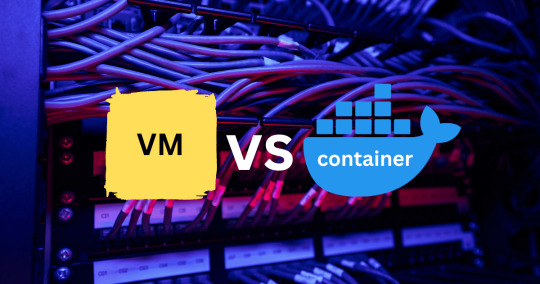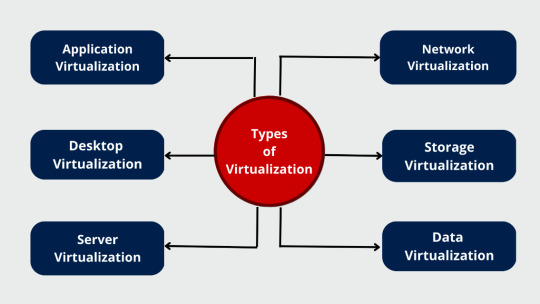#VirtualizationTechnology
Explore tagged Tumblr posts
Text
#SoftwareDefinedInfrastructure#SDIExplained#SDITechnology#SoftwareDefinedNetworking#SDIAdvantages#SDIInnovation#SDITrends#VirtualizationTechnology#SDIManagement#SDIImplementation#SDIApplications#SDINetworks#SoftwareDefinedStorage#SDIProsAndCons#SDIEfficiency#SDISolutions#SDIIntegration#SDIRevolution#SDIInnovations#SDIInfrastructure
0 notes
Text
💻 Virtual Machines = Virtual Gold? Market grows from $9.1B to $20.9B in 10 years. That’s an 8.7% annual glow-up.
Virtual Machines (VMs) have become a cornerstone of modern IT infrastructure, enabling businesses and developers to run multiple operating systems and applications on a single physical machine. This virtualization technology allows for greater flexibility, resource optimization, and cost savings by abstracting hardware resources and creating isolated environments for workloads. VMs are widely used in data centers, cloud computing, software development, and testing environments.
To Request Sample Report : https://www.globalinsightservices.com/request-sample/?id=GIS24109 &utm_source=SnehaPatil&utm_medium=Article
They provide high availability, simplified disaster recovery, and enhanced security through isolation. VMs also support rapid deployment, scalability, and efficient hardware utilization, making them essential for DevOps, continuous integration, and agile development practices. As the demand for hybrid and multi-cloud ecosystems increases, virtual machines continue to play a pivotal role in ensuring consistent performance across diverse infrastructures. With the rise of containerization, VMs still maintain their importance for running legacy applications, securing environments, and supporting mixed workload environments. The future of virtual machines includes deeper integration with AI for automation, smarter resource allocation, and tighter security protocols.
#virtualmachine #vmware #virtualization #cloudinfrastructure #itservices #datacenter #devops #hybridcloud #multicloud #computingpower #softwaredevelopment #techstack #infrastructureasaservice #vmenvironment #virtualservers #cloudsolutions #enterprisetech #vmdelivery #agiledevelopment #virtualizationtechnology #containerization #virtualworkloads #servervirtualization #resourceoptimization #cloudcomputing #vmsecurity #disasterrecovery #systemisolation #automationtools #aiintegration #futuretech #vmperformance #legacyapps #techinnovation #scalablesystems #cloudarchitectur
Research Scope:
· Estimates and forecast the overall market size for the total market, across type, application, and region
· Detailed information and key takeaways on qualitative and quantitative trends, dynamics, business framework, competitive landscape, and company profiling
· Identify factors influencing market growth and challenges, opportunities, drivers, and restraints
· Identify factors that could limit company participation in identified international markets to help properly calibrate market share expectations and growth rates
· Trace and evaluate key development strategies like acquisitions, product launches, mergers, collaborations, business expansions, agreements, partnerships, and R&D activities
About Us:
Global Insight Services (GIS) is a leading multi-industry market research firm headquartered in Delaware, US. We are committed to providing our clients with highest quality data, analysis, and tools to meet all their market research needs. With GIS, you can be assured of the quality of the deliverables, robust & transparent research methodology, and superior service.
Contact Us:
Global Insight Services LLC 16192, Coastal Highway, Lewes DE 19958 E-mail: [email protected] Phone: +1–833–761–1700 Website: https://www.globalinsightservices.com/
0 notes
Text
Virtual machine vs container: Which is best for home lab?
Virtual machine vs container: Which is best for home lab @vexpert #homelab #VirtualMachines #Containers #HomeLabTechnology #VMvsContainer #DockerContainers #OperatingSystems #VirtualizationTechnology #SoftwareDevelopment #VMware #ContainerImages
No doubt, if you have worked with technology for any time, you have heard the terms “virtual machines” and “containers” more than once. Both virtual machines and containers are core technologies in today’s ever-advanced technology world. However, many running home lab environments may wonder which they should run, virtual machine vs container. This post will dive deep into virtual machines vs.…

View On WordPress
#Container Images#containers#Docker containers#Home Lab Technology#Operating Systems#software development#virtual machines#Virtualization Technology#VM vs Container#vmware
0 notes
Text
Virtualization: The Key Technology Enabling On-Demand Computing in the Cloud
In cloud computing, virtualization is the process of creating a virtual version of something. It can be a virtual version of a server, a desktop, an operating system etc. Whereas the abstraction level, including virtual computer hardware, storage devices and computer network remains the same. Before getting into the depth of virtualization let me tell you in short what cloud computing is.
In simplest terms, cloud computing refers to storing and accessing data and programs on remote servers, instead of the hard drive of a computer or a local server.
Now let's talk about the role of virtualization in cloud computing.
Virtualization in Cloud Computing
Virtualization is a software-based technique that isolates a service from its physical delivery, creating a virtual machine or version of hardware. Multiple operating systems and applications can then run concurrently on the same system, enhancing its flexibility and utility.
Virtualization is an affordable way for many customers to use one application on a computer, which saves on hardware and energy for the cloud providers.
Here are some benefits of virtualization in cloud computing:
Efficiently allocate resources with flexibility.
Boost productivity via virtualization.
Cut IT costs with cost-effective virtualization.
Remote access and rapid scalability.
Run on multiple systems with virtualization.
Ensure high availability and disaster recovery with virtualization.
Types of Virtualizations

Here are the different types of virtualizations:
1. Application Virtualization: It lets you access an application from a server anywhere, while also storing your personal information. This means you can use the application through the internet and it supports different types of applications.
2. Network Virtualization: Many virtual networks can be created on one physical network, each with its own separate control and data plans managed by different people. Network virtualization provides things like switches, routers, firewalls, and load balancers for each network.
3. Desktop Virtualization: It stores the OS on a remote server in a data center, enabling access to the desktop from any location on any system. It benefits people needing specific operating systems with easy management of software installation, updates, patches, and user mobility.
4. Storage Virtualization: It is an array of servers managed by a virtual storage system. It helps in managing storage from multiple sources which are utilized as a single repository. Regardless of any modifications, storage virtualization software ensures uninterrupted operations, stable performance, and an ongoing set of advanced features.
5. Server Virtualization: The physical server is divided into several virtual servers with unique identities and processors, which masks server resources. This allows for isolated operating system use, improving performance and lowering operating costs.
6. Data virtualization: This system gathers information from different places and puts it all together in one place, without needing technical knowledge. It gathers, stores, and organizes data from various sources, and makes it accessible through cloud services.
Thus, virtualization can be a powerful tool for businesses utilizing cloud services. It can reduce costs, increase accessibility, and optimize hardware usage. This leads to improved productivity and operational efficiency. Additionally, virtualization enables easier cloud migration and enhances data availability and energy savings. All of this can positively impact a business's bottom line.
Read about the difference between virtualization and cloud computing in Nitor Infotech’s blog.
#virtualization#cloud computing#virtualizationincloud#virtualizationtechnology#cloudvirtualization#virtualizationbenefits#virtualizationsecurity#virtualizationmanagement#virtualizationsoftware#virtualizationengineer#virtualizationdeployment#virtualizationstrategy#virtualizationtools#virtualizationarchitecture#virtualizationconsulting#virtualizationtraining#cloudcomputingtechnology
0 notes
Text
#NetworkVirtualization#VirtualNetworks#DataVirtualization#ModernDataNetworks#SoftwareDefinedNetworking#VirtualizationTechnology#VirtualDataInfrastructure#NetworkVirtualizationTrends#DataVirtualizationSolutions#SDN#VirtualNetworkManagement#VirtualizedDataEnvironment#NetworkTransformation#DataCenterVirtualization#VirtualNetworkArchitecture#NetworkVirtualizationBenefits#DataVirtualizationTools#SDNVirtualization#VirtualNetworkSecurity#NetworkVirtualizationInnovation
0 notes